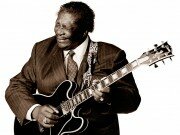
Podcast: |
Millennials have been in the news quite a bit lately, and rightly so. After all, they are shaping a lot of the changes that we see in the world around us today and, I’m happy to say, mostly for the better.
And why am I talking about them? Because in 2015, America’s millennial population will exceed 75 million, overtaking baby boomers as our largest living generation.In 2015, America’s millennial population will exceed 75 million, overtaking baby boomers as our largest living generation.
Who Are Millennials?
Millennials – or Generation Y as they are also called – are those born roughly between the early 1980s and about the year 2000 or so, young men and women who are now in their mid-teens to mid-30s and are linked to the millennial year 2000.
The writers who coined the term “millennial,” William Strauss and Neil Howe, chose 1982 as the starting birth year. They observed that children born around that time were different from their predecessors because their parents were so into the zeitgeist of child rearing and were more protective.
They’re also called Generation We, Generation Next and the Net Generation for their Internet roots – and they’ve developed quite a name for themselves already with behavioral patterns that clearly set them apart from baby-boomers. For example, on average, millennials live with their parents longer, switch jobs about every two years, are more inclined towards volunteering and workplace corporate philanthropy, are averse to investing in the stock market, etc. This generation certainly has a mind of its own and is clearly not following in their parents’ footsteps.
Of course, not all millennials identify with that tag… such as Juliet Lapidos who wrote an OpEd in the New York Times about her cognitive dissonance with being called a millennial. She says, the label doesn’t feel right, and she doesn’t identify with the kids that Time magazine described as technology-addled narcissists, the Justin Bieber fans who “boomerang” back home instead of growing up.
To Juliet Lapidos, 1981 and 1982 are too early to begin the millennial generation because she believes those born in the first half of the 1980s are different from those born in the ’90s and even the late ’80s, because they were at different points in their lives for two significant life-changing contemporary events: the personal computing revolution and the 2008 economic crash.
Unlike people that are now in their mid-20s, those in their mid-30s often do not see themselves as true digital natives because they did not grow up in an Internet-enabled world and instead wrote letters from summer camp, did not have mobile phones to text and chat growing up, and had no ipads and laptops in elementary school.
Many of the older millennials were also lucky enough to graduate before the worst financial crisis since the Great Depression — meaning they made their first career decisions when the economy was still good, and already had jobs when Lehman Brothers declared bankruptcy. If they’d graduated a few years later, in the depths of the Great Recession of 2008, they would almost certainly have experienced the long period of post-collegiate unemployment that became so common.
So folks such as Juliet, the New York Times contributor, cannot relate to the millennial tag when they read articles about what millennials are like because people like her don’t live on social media, read books on paper and did not have to move back in with their parents when the recession hit.
So, although there’s no perfect way to herd people into generational categories by birth year, the millennial boundaries seem more imperfect than necessary. No matter what the demographers say, there are sure to be holdouts who will simply reject the millennial tag.
But if you are a member of this millennial generation… I truly respect millennials’ independent thinking and breaking from the past but I will urge them to understand that they could well live to be over a 100 year old, and to not ignore the proven benefits of things such as investing for the long-run, stock-vesting by staying 4 years or more at one job, buying a house for its financial, investment and lifestyle benefits, etc. – selectively taking what’s greatly benefited past generations so millennials have no regrets down the road! And remember, it’s so much easier to be independent and go out and change the world, when you have a rich enough bank account to free you up financially – so, hopefully, some millennials will heed my advice!




















